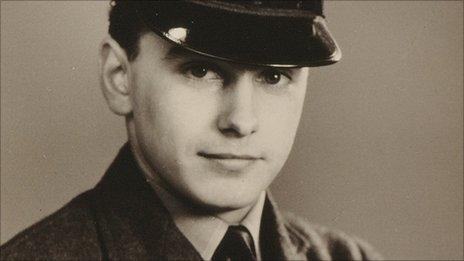Nuclear test veteran wants government apology over blasts
- Published
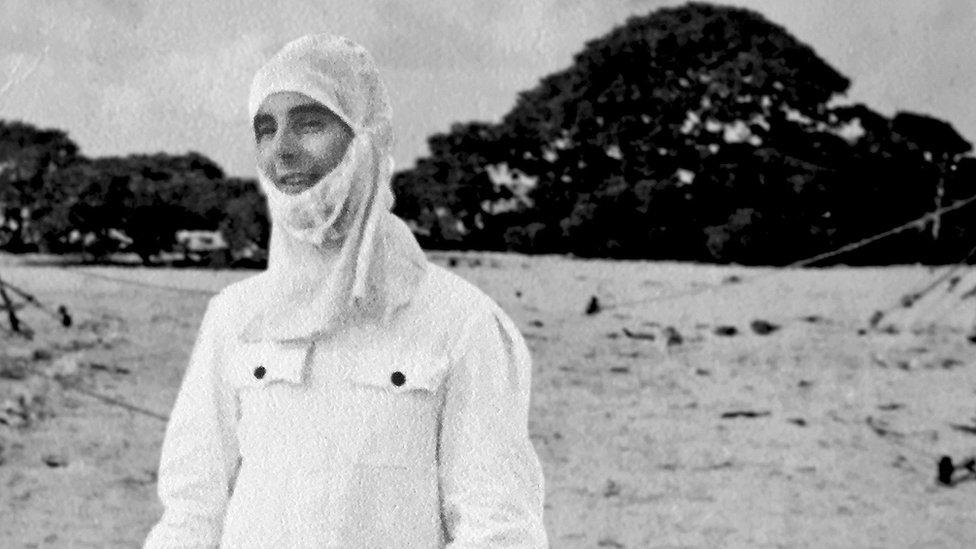
John Ward, in government-issued protective clothing, was on Christmas Island from 1957 to 1958
A British nuclear weapons tests veteran has called for a government apology after claiming his health was damaged by radiation from the blasts.
John Ward, 80, from Chesterfield, was sent to Christmas Island, in the Pacific Ocean, in the 1950s to witness atomic and hydrogen bomb explosions.
He said his cancer was related to radiation he was exposed to.
The Ministry of Defence said there was no "valid evidence" linking the nuclear tests to ill health.
Mr Ward, who spent the rest of his working life as a journalist, was one of 22,000 servicemen who were sent to the South Pacific in 1957 to observe the weapons being detonated.
He was stationed on Christmas Island for two years and saw three atomic and three hydrogen bomb tests.
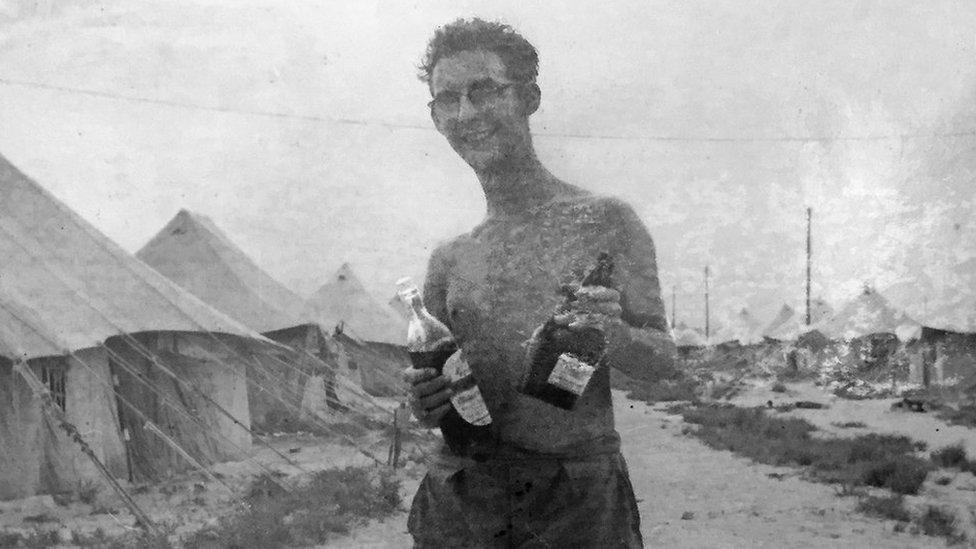
John Ward said the men lived in tents on the island
Mr Ward said: "When the bombs went off, particularly the H-bombs, if you put your hands over your eyes, with your back to the explosion, you could see the bones in your hands.
"The sound was dramatic and the wind rush was terrific, it nearly knocked you over.
"When you turned around and looked at the mushroom cloud going up, the intensity of the light was dramatic."
"We were scared to be quite honest," he added.
He said the men who were stationed on the island were "guinea pigs" and believes his own bladder cancer diagnosis was caused by exposure to radiation.
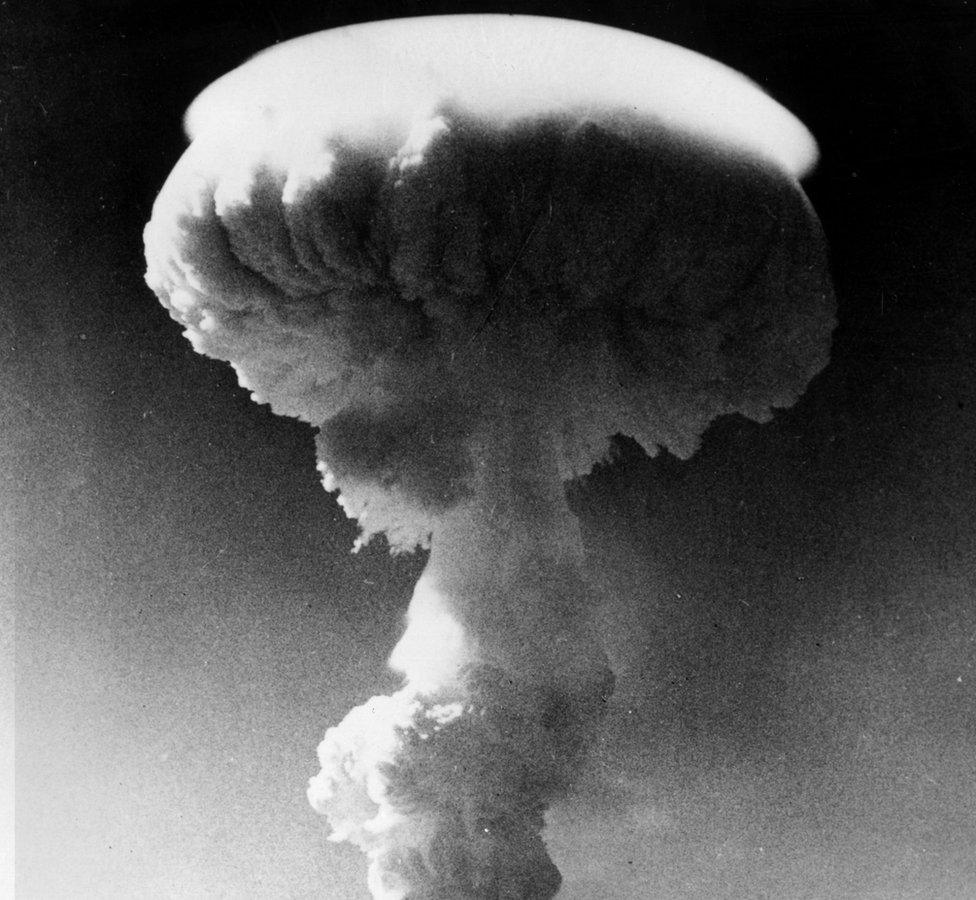
Britain's first H-bomb was detonated near Christmas Island in 1957
Mr Ward is now clear of cancer, but believes his children have been genetically affected - his son recently had half of his kidney removed due to the disease and his daughter has numerous medical issues.
He has been campaigning, along with other veterans, for an apology and compensation from the government.
Labour's deputy leader Tom Watson has given his backing to the ex-serviceman being recognised with a medal.
Allow X content?
This article contains content provided by X. We ask for your permission before anything is loaded, as they may be using cookies and other technologies. You may want to read X’s cookie policy, external and privacy policy, external before accepting. To view this content choose ‘accept and continue’.
Douglas Hern, of British Nuclear Test Veterans' Association, said: "If you were at these test, you know what a piece of meat feels like when it is microwaved.
"We have lived with the trauma of the tests and the consequences through our families and it would be nice to be recognised and valued for what we did for our country."
A Ministry of Defence spokesman said: "We are grateful to all those who participated in the British nuclear testing programme which contributed to keeping our country secure and we carefully consider every request to recognise their extraordinary accomplishments.
"The National Radiological Protection Board has carried out three large studies of nuclear test veterans and found no valid evidence to link participation in these tests to ill health."

Follow BBC East Midlands on Facebook, external, on Twitter, external, or on Instagram, external. Send your story ideas to eastmidsnews@bbc.co.uk, external.
- Published16 February 2018
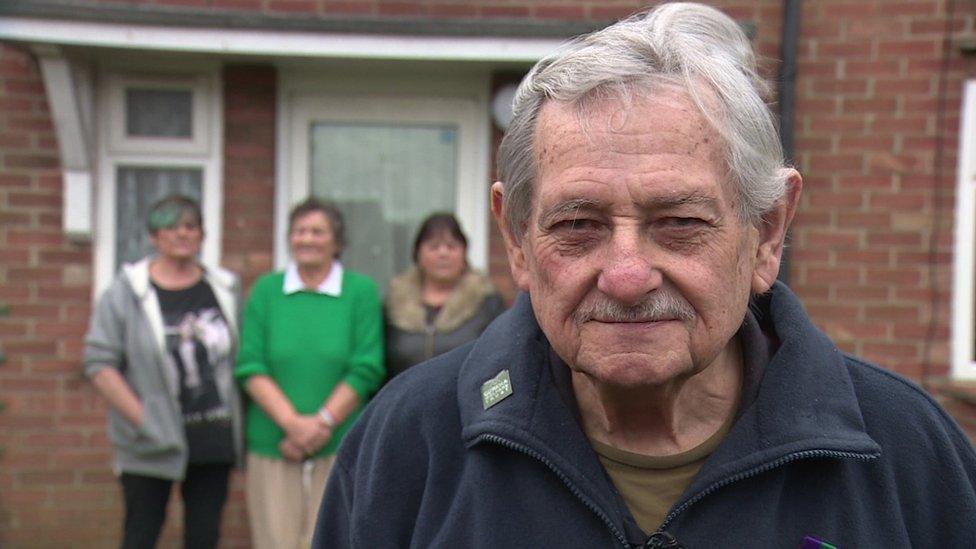
- Published8 July 2013
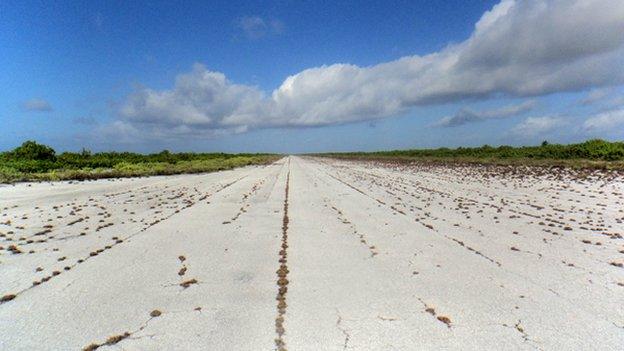
- Published28 July 2011
